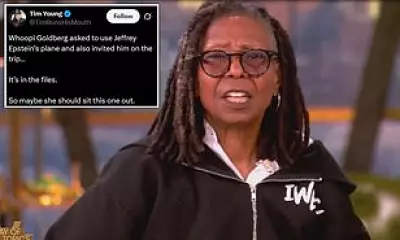
ITV is staring down the barrel of a major financial crisis, forcing bosses into a brutal overhaul of its prime-time schedule. A devastating £150 million shortfall in advertising revenue has left the broadcaster with no choice but to consider wielding the axe on some of its biggest entertainment properties.
The channel's most glittering assets, including the chaotic fun of The Masked Singer and the sun-drenched drama of Love Island, are now under serious threat. Insiders fear these flagship shows could be cancelled entirely or, at the very least, booted out of their coveted peak-time slots in a desperate bid to save cash.
A Perfect Storm of Financial Woes
The roots of this crisis run deep. ITV is caught in a perfect storm of lacklustre ad sales and a sharp decline in viewer numbers for its key programmes. This double whammy has blown a massive hole in its budget, prompting panic at the highest levels.
An ITV source revealed the grim reality: "The sums just don’t add up anymore. When advertising money is this tight, you have to make brutal choices. The shows that cost a fortune to make are the first to be scrutinised."
Who Else is on the Chopping Block?
The scrutiny isn't limited to singing celebrities and island romances. The reboot of Michael Barrymore's iconic gameshow, Strike It Lucky, was meant to be a triumphant return but is now in serious jeopardy before it even airs.
Even the trusted Martin Lewis Money Show isn't immune. While a vital public service, its future format and scheduling are being heavily debated as the channel looks to cut costs wherever it can.
The Human Cost: Jobs on the Line
Behind the scenes, the atmosphere is described as "incredibly tense." The financial pressure doesn't just threaten our favourite shows; it puts hundreds of jobs for production crews, set designers, and freelancers across the UK's creative industry at serious risk.
This potential cull represents one of the most significant shake-ups in British television in recent years. Viewers may soon be faced with a dramatically altered ITV schedule, filled with cheaper-to-produce programming, as the broadcaster fights to stay afloat in an increasingly competitive market.





